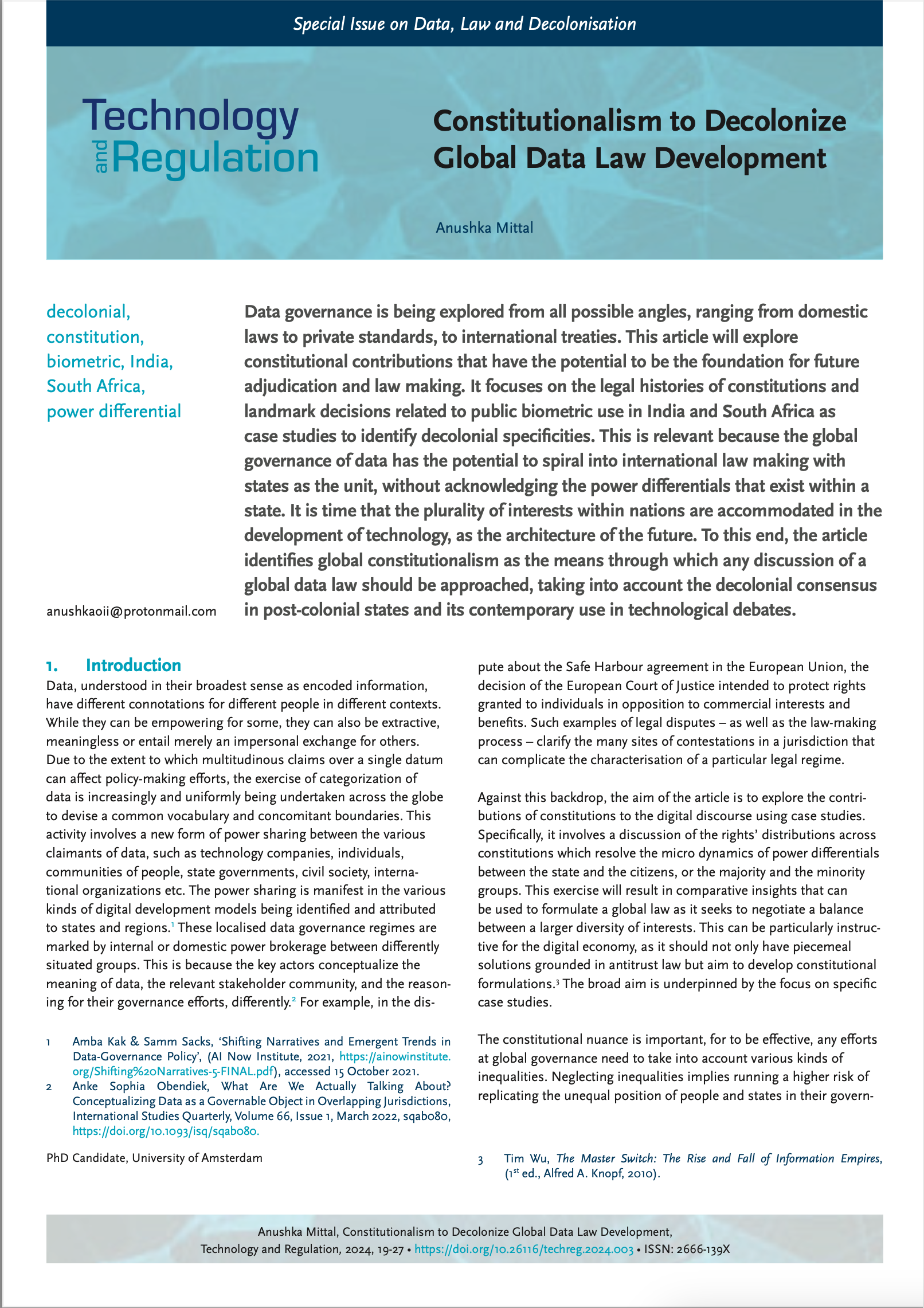Constitutionalism as a Way to Decolonize Global Data Law Development
DOI:
https://doi.org/10.71265/8vch9473Keywords:
decolonial, constitution, biometric, India, South Africa, power differentialAbstract
Data governance is being explored across all possible avenues, ranging from domestic laws, private standards to international treaties. Amidst this din, there are also constitutional contributions at different points of time with the potential to lay down the first principles for future adjudication and law making. This article analyses the legal histories of constitutions and landmark decisions related to public biometric use in India and South Africa to identify decolonial specificities. Global governance of data has the potential to spiral into international law making with states as the unit, without acknowledging the power differentials that exist within a state. It is time that the plurality of interests within nations are accommodated in the development of technology, as the architecture of the future. For the same, the article identifies global constitutionalism as the means through which any discussion of a global data law should be approached, taking into account the decolonial consensus in post-colonial states and its contemporary use in technological debates.
Downloads

Downloads
Published
Issue
Section
License
Copyright (c) 2024 Anushka Mittal

This work is licensed under a Creative Commons Attribution-NonCommercial-NoDerivatives 4.0 International License.






